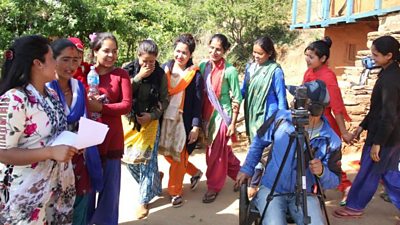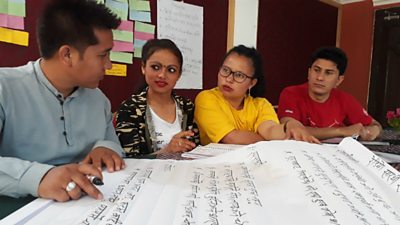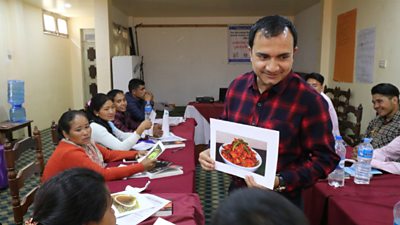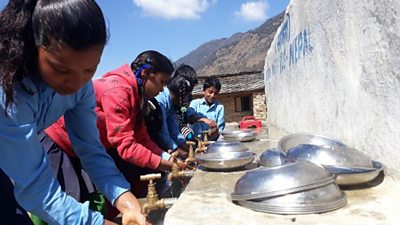I like the PSAs aired by Sano Bheri FM, especially on menstrual hygiene and sanitation. They are informative, entertaining, and because it is in our local dialect it is easy for us to understand. In the past, we used to hide (because of embarrassment) the cloth we used during menstruation (to dry them out). After listening to the PSAs we are now aware of the risks of using unhygienic cloth and have started leaving them out in the sun to dry.-
In 2017, we launched a research and behaviour change communication project with the World Food Programme (WFP) in Sindhupalchowk and Accham districts of Nepal. This pilot project aimed to support local media partners to create effective and evidence-based Public Service Announcements (PSAs) that encouraged good nutrition and water, sanitation and hygiene (WASH) behaviours.
The overall objective is to inform parents and caregivers about how to improve their own hygiene practices, and encourage them to raise awareness of improved health and hygiene in their communities – especially with children. The PSAs cover topics such as effective water treatment, good handwashing procedures, eating a balanced diet, and hygienic preparation of school meals.
Scaled up in 2018 and 2019, the project is now operating in 12 different WFP working districts in the mid and far west of Nepal, helping partners to produce content in multiple dialects and languages.

Rooted in evidence
We conducted qualitative research – through community and school observations, focus group discussions and one-to-one interviews – to understand the existing nutrition and WASH practices of people in remote areas of Nepal. We discovered there are major challenges in personal and community hygiene – mainly due to lack of knowledge, time, resources and poor economic conditions. This research was integral to the content-production process with partner stations.

Gradual, but steady change
Through intensive mentoring and capacity building in radio stations, we have helped enhance their skills to sustain high-quality and accurate programmes around nutrition and WASH issues.
The PSAs resonate with audiences, in many cases encouraging positive action. For instance, PSAs have addressed isolating and often dangerous superstitions around menstruation, including chhaupadi – now banned by the government but still prevalent in rural areas, in which women and girls prohibited from eating or sleeping in the family home during menstruation. The PSAs have helped dispel myths and in doing so, some of the shame associated with menstruation.

Project information
| Project name | Nutrition and WASH Behaviour Change Communication |
| Funder | |
| Dates | 2017 - ongoing |
| Themes | Health, hygiene |
| Outputs | Formative research in 12 WFP working districts, support to 11 local radio partners for PSA production, capacity strengthening |
| Broadcast partners |
11 local radio stations |
